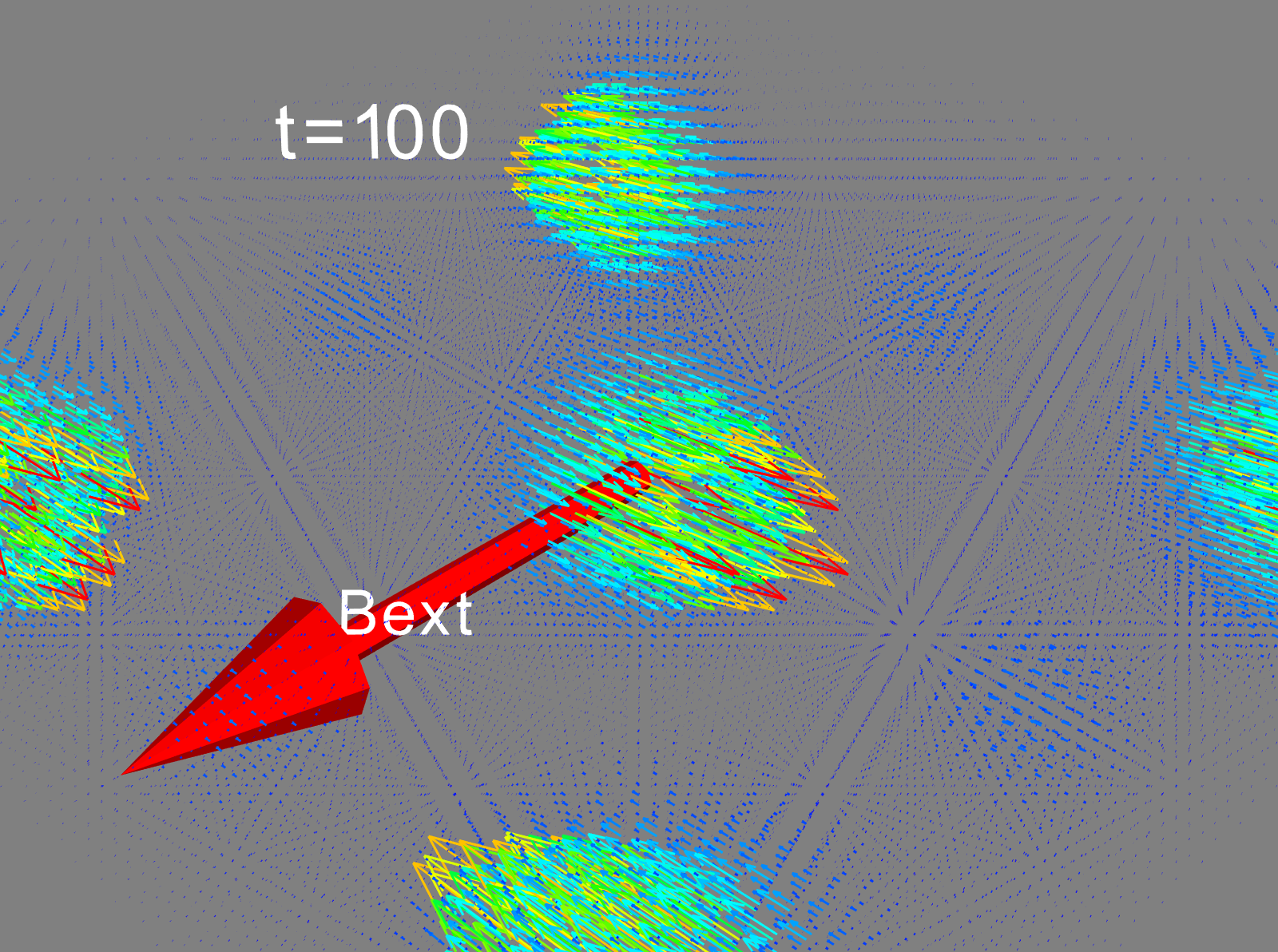 Congratulations to Jacopo Simoni, Wuzhang Fang, Andrew Grieder and Yuan Ping for their work with Xavier Andrade Alfredo A. Correa, and Tadashi Ogitsu on “Spin non-collinear real-time time-dependent density-functional theory and implementation in the modern GPU-accelerated INQ code”, published in APL Computational Physics on October 13! Link to the published article.
Congratulations to Jacopo Simoni, Wuzhang Fang, Andrew Grieder and Yuan Ping for their work with Xavier Andrade Alfredo A. Correa, and Tadashi Ogitsu on “Spin non-collinear real-time time-dependent density-functional theory and implementation in the modern GPU-accelerated INQ code”, published in APL Computational Physics on October 13! Link to the published article.
Time-dependent density functional theory (TDDFT) describes the time evolution of quantum mechanical many-electron systems under the influence of external time-dependent electric and magnetic fields. INQ is especially designed to efficiently solve the real-time TDDFT equations on graphics processing units, which aims to overcome the computational limitation of time and size scales of non-equilibrium quantum dynamics. In this work, we present an implementation of non-collinear TDDFT for the INQ code to simulate spin dynamics in real time. We discuss the implementation of non-collinear magnetic effects, exchange correlation magnetic fields, spin–orbit coupling, and the interaction between the electronic system and external magnetic fields, with plane-wave basis and pseudopotential approximations. We consider several prototypical examples of spin dynamics in magnetic clusters and solids after light excitation.
We acknowledge support from the Computational Materials Sciences Program funded by the US Department of Energy, Office of Science, Basic Energy Sciences, Materials Sciences and Engineering Division for the materials application and the code development and support from the NSF through the University of Wisconsin Materials Research Science and Engineering Center (No. DMR-2309000).